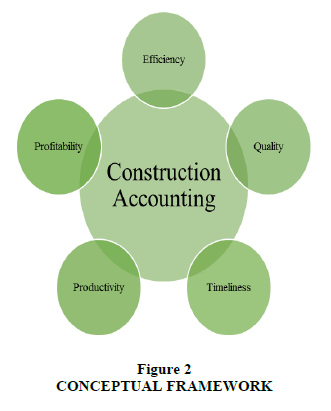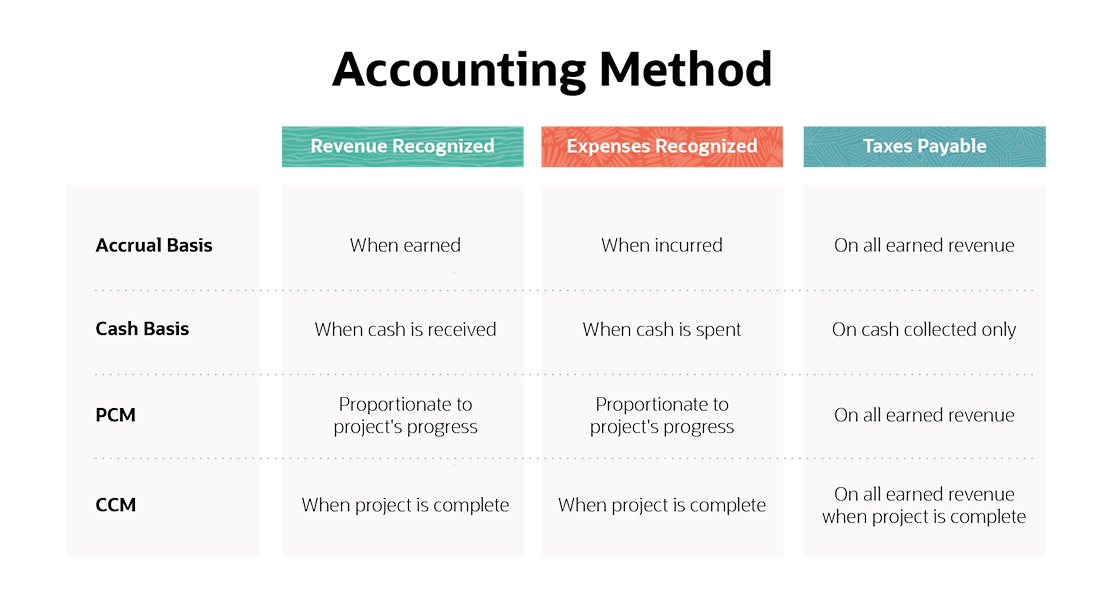Streamline Your Business Finances with Professional Construction Accounting Services
Streamline Your Business Finances with Professional Construction Accounting Services
Blog Article
Understanding the Importance of Building Accountancy for Successful Task Monitoring

Duty of Building Accountancy
Building audit works as the foundation of monetary administration in the building and construction sector, ensuring that projects are completed within budget and monetary purposes are fulfilled. construction accounting. This specific accounting technique addresses the distinct obstacles encountered in construction tasks, including varying project periods, rising and fall costs, and multiple stakeholders
Among the main functions of construction accounting is to give precise cost evaluation and tracking throughout the job lifecycle. This facilitates enlightened decision-making, enabling job managers to change timelines and sources properly. Furthermore, construction accountancy enhances cash money flow monitoring by monitoring accounts receivable and payable, therefore making certain that funds are available for timely repayments to subcontractors and vendors.
It furnishes task supervisors with the needed economic data to prepare comprehensive monetary declarations, which are crucial for audits and economic evaluations. Inevitably, the role of construction accounting extends beyond simple financial tracking; it is indispensable to strategic preparation and functional effectiveness, driving the success of construction tasks in an affordable landscape.
Key Components of Construction Audit

Budgeting establishes an economic framework that guides task implementation, allowing managers to assign resources successfully and prepare for possible financial challenges. Accurate price monitoring is crucial for tracking expenses in real-time, helping to identify differences between forecasted and real expenses. This makes it possible for prompt modifications to maintain the task on budget.
Moreover, economic coverage gives stakeholders with a clear image of the project's financial health and wellness. Regular reports, such as revenue and loss declarations and cash flow analyses, assist in notified decision-making and boost openness among all events included.
Furthermore, compliance with industry regulations and bookkeeping standards is important. This ensures that monetary methods are not just effective yet likewise authorized, safeguarding the company against lawful consequences. By integrating these essential elements, construction accounting promotes an organized strategy to taking care of financial resources, ultimately adding to the successful conclusion of building projects.
Advantages for Job Supervisors
Leveraging reliable building and construction audit practices provides job managers with a wide range of advantages that improve both operational performance and economic oversight. One significant benefit is enhanced budget monitoring. Exact tracking of expenses and profits allows task managers to keep track of monetary efficiency in genuine time, making certain jobs continue to be within budget plan and assisting in prompt changes when necessary.
In addition, building and construction accountancy simplifies capital administration, making it possible for task managers to prepare for financial demands and optimize source allocation. By recognizing cash money inflows and outflows, they can much better handle repayments to staff members, subcontractors, and providers, therefore staying clear of expensive hold-ups.
In addition, robust bookkeeping systems offer thorough reporting abilities. Job managers can create records that offer understandings right into task profitability, price variances, and click here for more info resource usage. This data-driven strategy promotes notified decision-making, enabling supervisors to determine prospective concerns proactively and apply rehabilitative actions.
Lastly, adherence to building audit requirements makes certain conformity with legal and governing requirements, decreasing the threat of charges or conflicts. Overall, reliable building and construction accountancy equips task supervisors with the devices needed to drive project success, improve stakeholder self-confidence, and advertise long-term organizational development.
Usual Difficulties in Construction Audit
Many task managers come across considerable obstacles in building accountancy that can impede job success. Among the main difficulties is the intricacy of tracking multiple work sites, each with distinctive budgets, timelines, and source allotments. This calls for precise interest to detail, which can be frustrating without a robust bookkeeping system in position.
In addition, changing product costs and labor rates can complicate budget administration, making accurate forecasting challenging. Project supervisors commonly battle to resolve these prices with actual expenditures, leading to possible economic inconsistencies.
Moreover, building and construction bookkeeping includes conformity with various policies, consisting of tax obligation commitments and labor laws. Navigating these rules can be challenging, particularly for supervisors who may not have a solid bookkeeping background.
Another considerable difficulty is managing capital, which is vital in the building market. Delays in invoicing, settlements from clients, or unanticipated task modifications can develop capital shortages, endangering the project's development.
Finally, efficient communication between task supervisors, accounting professionals, and area teams is crucial. Misunderstandings can cause inaccurate financial coverage, further making complex task administration efforts. Addressing these difficulties proactively is important for successful building audit.

Ideal Practices for Effective Accountancy
While browsing the complexities of construction bookkeeping can be challenging, embracing ideal techniques can significantly enhance financial management and task success. One basic method is keeping prompt and accurate documents. Implementing robust accounting software program tailored to building and construction tasks can simplify data access, invoicing, and coverage, conserving and decreasing errors time.
In addition, establishing a clear spending plan and regular tracking against this budget plan are critical. Employing a system of routine monetary reviews allows project managers to determine variations early, facilitating timely decision-making. It is likewise vital to different task prices into direct and indirect classifications, enabling more clear understandings into earnings.
Another best practice includes cultivating open interaction among all stakeholders. Routine updates and collaborative conversations regarding economic condition can make certain every person is straightened and educated. Training personnel in construction-specific audit concepts further enhances expertise and accuracy.
Last but not least, making sure compliance with pertinent accountancy criteria and laws is non-negotiable. Routine audits and interior testimonials add to openness and accountability, developing count on with stakeholders and customers. By concentrating on these ideal practices, construction companies can enhance their accounting procedures, eventually find more driving job success and monetary security.
Conclusion
To conclude, building bookkeeping plays a crucial role in ensuring successful job management by helping with accurate economic oversight and enhancing decision-making. By integrating key parts such as price evaluation, capital management, and conformity, task supervisors can navigate common obstacles and utilize ideal practices for efficient audit. Ultimately, a robust building and construction accounting structure not only safeguards budget plan integrity yet likewise adds to the overall monetary wellness of building and construction jobs, fostering sustainable success within the market.
By integrating these crucial parts, construction accounting cultivates an organized approach to managing economic resources, ultimately adding to the successful conclusion of construction tasks.
Exact tracking of profits and costs permits other job managers to keep an eye on economic performance in actual time, making certain projects continue to be within budget and helping with prompt adjustments when essential.
Job managers can produce records that use understandings right into job success, expense variations, and resource utilization.Numerous project supervisors encounter substantial challenges in building and construction audit that can hinder project success. construction accounting. Ultimately, a durable building accounting structure not only safeguards spending plan honesty but also adds to the total economic health of building and construction tasks, fostering sustainable success within the sector
Report this page